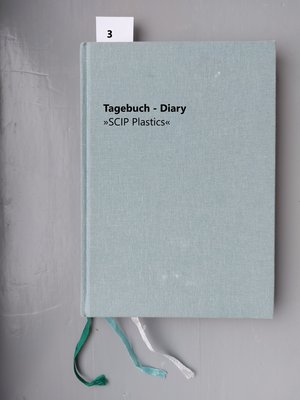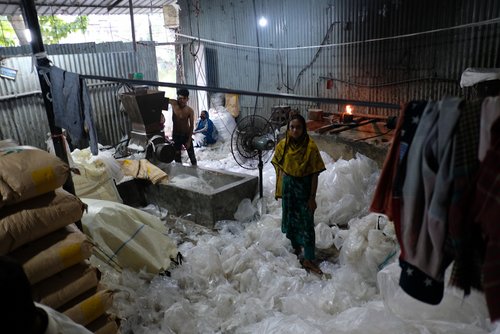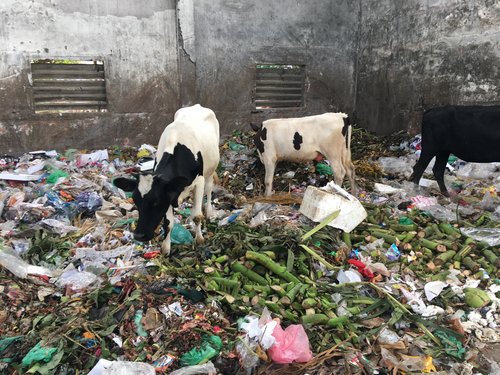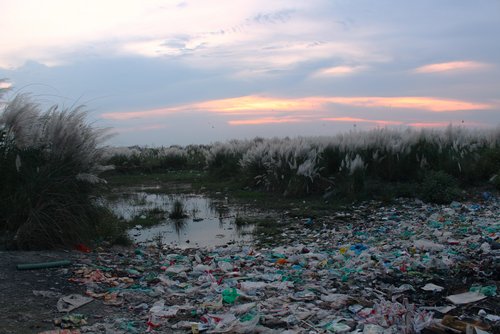From the »SCIP Plastics« Research Log: Jute Instead of Plastic?
Single-use plastics have officially been banned in Bangladesh. But they are still part of the urban landscape. Researchers from the »SCIP plastics« project in Bangladesh and Germany, however, are seeking alternatives. Research associate Susanne Kühlewindt reports on this in the third instalment of the research log.
Single-Use Plastic Bags Still Being Used Despite Ban:
January 2023
When examining photos of the city of Khulna’s waste management situation, it quickly becomes clear that the legal requirements do not match up with reality. This is most clearly visible in the vast amount of single-use plastic bags being used, despite them having been banned in Bangladesh since 2002. Our work group project hopes to find out whether alternatives to plastic products that make ecological and economic sense exist. Disposable plastic products are the central focus of our investigation.
Over the past few months, we have been researching, among other things, the single-use products that are commonly used at the household level in Bangladesh. A study carried out by the World Bank in Dhaka showed that single-use plastic bags make up nearly 30 percent of household plastic waste. Reducing or even completely eliminating this source of plastic waste is worth striving for if regionally available, ecological alternatives are available. Jute cultivation has a long tradition in Bangladesh, making it an obvious contender as an alternative. At the moment, we are working on a life cycle assessment that compares the raw material production of plastic granulates with the agricultural cultivation of jute. Future steps include comparing various plastic and jute product in a regional context. I am already looking forward to the results. Until then, it’s research and calculations every day. The bi-weekly online conversations with colleagues from the Bangladesh work group are always a welcome interruption and promote understanding and exchange.
M. Sc. Susanne Kühlewindt
Bauhaus-Universität Weimar
Department of Biotechnology in Resources Management
Bauhaus-Institute for Infrastructure Solutions (b.is)
Background:
Prof. Dr.-Ing. Eckhard Kraft’s research team is tackling a global issue: plastic waste in our oceans. It takes thousands of years for plastic to decompose. In the process, plastic waste breaks down into smaller and smaller particles. Marine animals often mistake these particles for food, swallow them and then die painfully. Engineers at the Bauhaus-Universität Weimar are working together with a team in Bangladesh and the »Instituts für sozial-ökologische Forschung (ISOE)« to find out how to prevent waste from entering waterways. The research project, titled »Sustainable Capacity Building to Reduce Irreversible Pollution by Plastics«, or, for short: »SCIP plastics«. Together, project members are seeking solutions for waste management and developing a knowledge transfer centre on the Khulna University of Engineering & Technology campus. Their goal? To improve the collection, sorting and recycling of waste. The researchers have until November 2024 to find solutions - this research log follows their activities.

Project Description
https://www.uni-weimar.de/fileadmin/user/uni/dezernate/dfo/TOP-Projekte/2021/2021_49_Kraft_Skip_Plastics.pdf
»SCIP plastics« website
Bauhaus-Universität Weimar:
https://www.uni-weimar.de/en/civil-engineering/chairs/biotechnology-in-resources-management/research/current-projects/scip-plastics/
Khulna University of Engineering & Technology: https://kuet.ac.bd/scip/index.php
Contact
Prof. Dr. Eckhard Kraft, Professor of Biotechnology in Resources Management, Faculty of Civil Engineering, via e-mail (waste[at]bauing.uni-weimar.de) or phone (+49 (0) 3643 / 58 4621).



